Delatestryl: Complete Profile, Dosage, and Other Relevant Information
Table of Content
- Generic Name
- Brand Name
- What Is Delatestryl?
- Structural formula
- Usage in men and women
- How to take Delatestryl (Intramuscular)?
- What Are the Side Effects of Delatestryl?
- Dosage for Delatestryl
- What Drugs, Substances, or Supplements Interact with Delatestryl?
- Delatestryl During Pregnancy and Breastfeeding
- Who should not take this medication?
Generic Name
Testosterone Enanthate
Brand Name
Delatestryl
What Is Delatestryl?
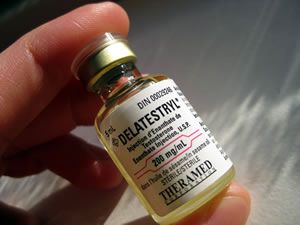
A hormone class known as an androgen produces Delatestryl, sometimes referred to as testosterone enanthate. It is typically utilized in males who have lower testosterone levels than normal. Delatestryl is administered intramuscularly with a needle and is offered in generic form.
The molecular structure of Delatestryl when it is active in the body has a 17-beta-hydroxy group. It can remain effective for a longer time thanks to this structure. The 17-beta-hydroxy group disintegrates once within the body, producing free testosterone.
Delatestryl is a member of the androgens family of drugs, which mimic the effects of male hormones. In order to make up for the missing hormone, it is administered to men who suffer from illnesses brought on by low levels of testosterone. It's crucial to establish the deficiency through symptoms and blood testing before utilizing testosterone enanthate.
This drug's main goal is to make up for the body's deficiency in testosterone. It should only be used in cases when a testosterone deficit has been identified through blood tests and symptoms.
The chemical name for testosterone enanthate is androst-4-en-3-one, 17-[(1-oxoheptyl)-oxy]-, (17)-.
Structural formula
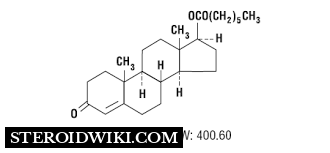
Usage in men and women
Delatestryl is a prescription medication used to treat low levels of testosterone, a natural hormone found in men. It is intended for males who do not make enough testosterone naturally. It can also be used to aid adolescent males who are experiencing delayed puberty in some situations. In addition, testosterone may be given to women to treat some types of cancer.
Testosterone is required for a variety of normal male processes, including the development of genitals, muscles, and bones. It also aids in the initiation of normal sexual development during puberty. Delatestryl belongs to the class of medicines known as androgens. It works by influencing several body systems to support appropriate development and functioning. In some situations, testosterone can be used to induce puberty in boys who have delayed puberty, as well as to treat some types of breast cancer in women.
Delatestryl is used to treat diseases caused by low testosterone levels in men and boys, such as delayed puberty, impotence, and other hormonal abnormalities. It is crucial to highlight, however, that testosterone injections should not be used only to address low testosterone due to ageing in the absence of certain medical issues. Delatestryl is used in women to treat metastatic breast cancer that has spread to other regions of the body and cannot be treated surgically.
In summary, Delatestryl is used for the following purposes:
- Treatment of breast cancer in women.
- Management of low testosterone levels.
- Assistance in inducing puberty in certain children with delayed puberty.
How to take Delatestryl (Intramuscular)?
Testosterone is usually given through injections, either beneath the skin or into a muscle. These injections are typically given every 2 to 4 weeks and must be delivered by a healthcare expert.
The duration of testosterone injection treatment will vary based on the problem being treated. It is critical to understand that testosterone injections may raise blood pressure, increasing the risk of a heart attack, stroke, or even death. As a result, regular blood pressure monitoring is required. In rare circumstances, it may be necessary to stop using testosterone or begin taking blood pressure medicine.
What Are the Side Effects of Delatestryl?
Delatestryl, like any other medicine, can have negative effects. Delatestryl may cause the following adverse effects:
- Nausea
- Headache
- Vomiting
- Anxiety
- Changes in skin color
- Depression
- Increased or decreased sexual interest
- Numbness or tingling sensation
- Breast swelling in men
- Oily skin
- Acne
- Hair loss
- Injection site reactions such as pain, redness, or swelling
In women, it may also cause the following side effects:
- Changes in menstrual periods
- Male-pattern hair growth (e.g., on the chin or chest)
- Male pattern baldness
- Enlarged clitoris
Other potential side effects of Delatestryl include:
- Acne
- Changes in menstrual periods (including missed periods)
- Deepening of the voice
It is critical to notify your doctor if you develop any major adverse effects while using Delatestryl, such as:
- Mental or mood problems
- Snoring
- Signs of significant liver illness, such as chronic abdominal pain or nausea, unusual exhaustion, yellowing of the eyes or skin, or black urine
- Hand, ankle, or foot swelling
- Unusual tiredness
- Shortness of breath
It's important to note that not everyone has side effects, and others may just have minor ones. If you have any bothersome or persistent side effects, you should contact your doctor or seek medical attention. These could include:
- Pimples
- Diarrhea
- Emotional ups and downs
- Fatigue or weakness
- Trouble sleeping
- Irritation at the site where Delatestryl is administered.
Dosage for Delatestryl
Delatestryl dosage is influenced by characteristics such as age, treatment response, and side effects. The monthly maximum dose is between 200 mg-400 mg. Body weight, other medical conditions, and concurrent medications are all factors that can determine the optimal dosage for an individual. If your doctor has recommended a different dosage than what is listed here, it is critical that you do not change your intake without first checking with your doctor.
What Drugs, Substances, or Supplements Interact with Delatestryl?
Delatestryl may interact with other medications, chemicals, or supplements. It is critical to inform your doctor about all medications and supplements that you are taking. Here are some examples of known interactions:
- Adrenocorticotropic hormone (ACTH)
- Cyclosporine
- Corticosteroids (e.g., dexamethasone, prednisone)
- Diabetes medications (e.g., chlorpropamide, glyburide, glipizide, insulin, rosiglitazone, metformin)
- Pasireotide
- Octreotide
- Somatostatin
- Warfarin
Delatestryl During Pregnancy and Breastfeeding
Delatestryl should not be used during pregnancy or when breastfeeding since it can affect the fetus. Women who use this drug should use two kinds of birth control (for example, condoms and birth control tablets) and see their doctor.
Delatestryl does not appear to transfer into breast milk. It may, however, impair milk production and endanger a breastfeeding infant. It is not advised to breastfeed while taking this medicine.
Who should not take this medication?
There are several people who should not take this medication:
- Those who are allergic to testosterone or any of the medication's constituents.
- Females, especially those who are pregnant or breastfeeding.
- People who have or are suspected of having breast cancer.
Disclaimer: SteroidWiki doesn't promote unlawful usage of any chemical compound. The knowledge presented in this article and on the website is purely for educational purposes. If you intend to use the information provided in this article for any purpose, please make sure to check & comply with the laws of your country or area.
Click here for information.

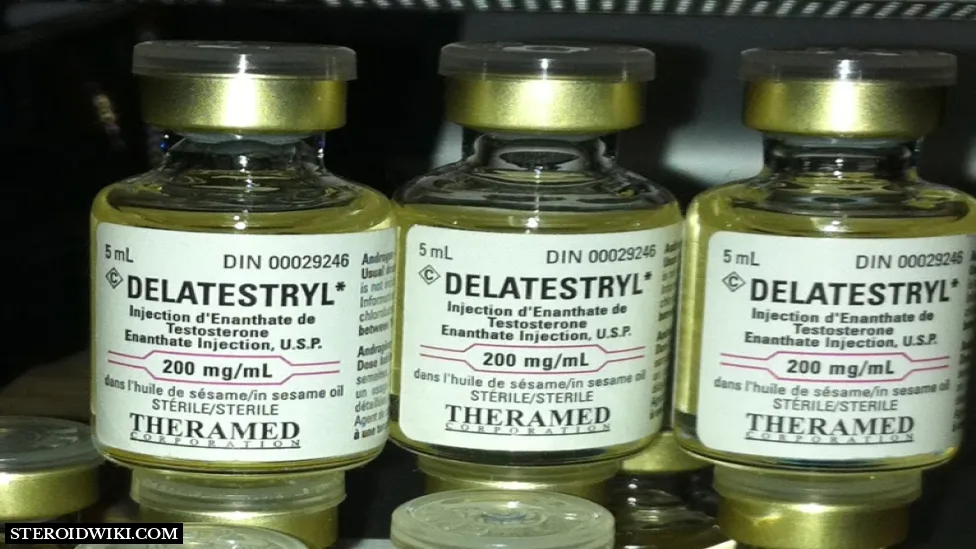


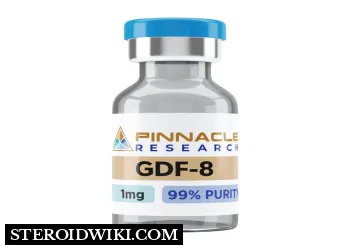



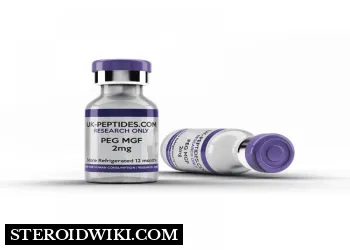




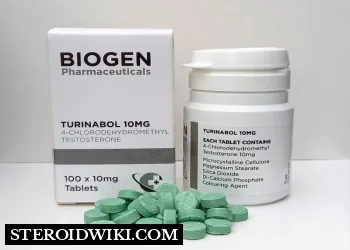





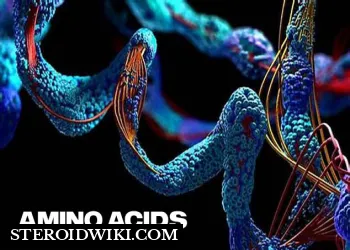

1 replies • 1 year ago
Very useful information. Btw how quickly does Delatestryl start showing its effects?
0 replies • 1 year ago
@Ziller33 Hey brother!!! The onset vary from person to person and depend on factors such as dosage, individual metabolism, and the specific condition being treated. As mentioned in the article it took 3–4 weeks to show it's effects.
0 replies • 1 year ago
Thank you for this detailed information. I wanted to ask are there any specific dietary restrictions or precautions while taking Delatestryl? Or you can take it without any restrictions?